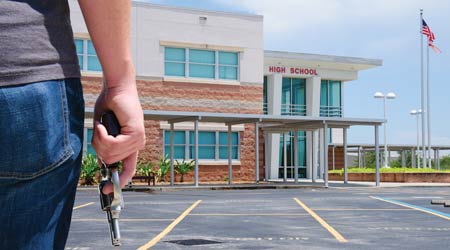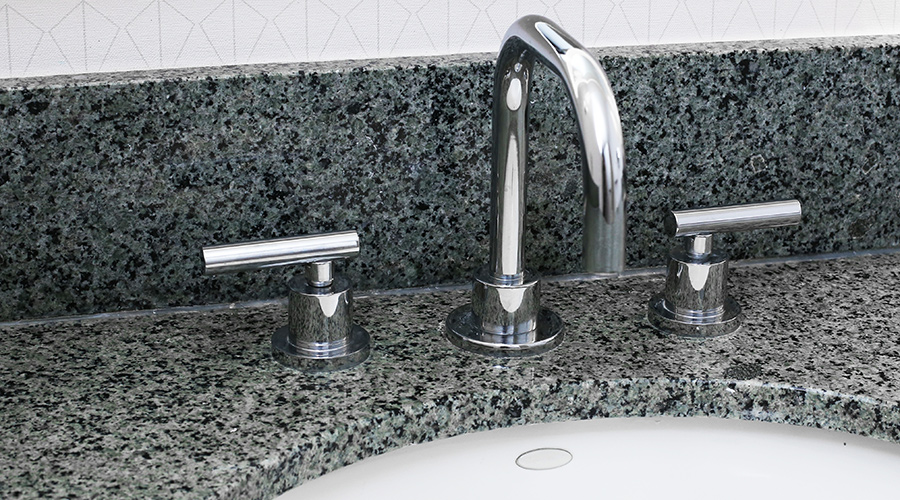Active shooters were nearly unheard of as a threat to facilities at one time, but that time has passed. Now, maintenance and engineering managers, especially those in education facilities, need to prepare for such situations, according to an article from Facilities Maintenance Decisions on the FacilitiesNet website.
One key component of any facility’s security and access control plans against unwanted intruders is door hardware — including locks, handles, hinges and operators — that delivers durability and reliability. By taking security into consideration during specification, installation, inspection and testing, managers can ensure hardware integrates effectively with access control systems and delivers the desired security.
Robust entry door locks and accessories, such as latch guard plate covers, are a key consideration during door lock specification, especially for facilities that depend on delayed entry to protect occupants against active shooters. With large numbers of defenseless occupants concentrated closely together, a shooter is close to occupants after achieving entry. This situation makes first responders’ challenge more difficult because of the potential for innocents being in the line of fire or used as hostages.
To ensure door hardware delivers effective security, managers need understand the product manufacturing process and ensure installers follow recommended procedures. They also need to follow up with careful inspection and testing.
Manufacturers of locks, handles, hinges, and operators use ANSI/BHMA A156. Specific door specification standards for steel door manufacturing are contained in ANSI/SDI A250.8. The best specifications for locks and doors might not provide adequate security if the installation is sub-standard. Initial testing and regular follow-up with inspection, testing and adjustment are necessary parts of any security program.

 From Downtime to Data: Rethinking Restroom Reliability in Healthcare
From Downtime to Data: Rethinking Restroom Reliability in Healthcare LeChase Building Four-Story Addition to UHS Delaware Valley Hospital
LeChase Building Four-Story Addition to UHS Delaware Valley Hospital AdventHealth Sebring Breaks Ground on Expansion Project
AdventHealth Sebring Breaks Ground on Expansion Project Regulations Take the Lead in Healthcare Restroom Design
Regulations Take the Lead in Healthcare Restroom Design AHN Allegheny Valley Hospital Opens Expanded Inpatient Rehabilitation Unit
AHN Allegheny Valley Hospital Opens Expanded Inpatient Rehabilitation Unit